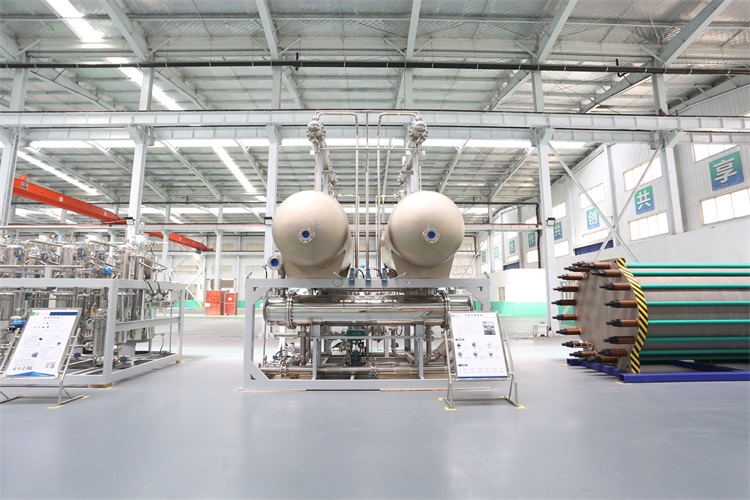Advantages of Alkaline Electrolysis of Water for Hydrogen Production
2023-06-15 15:38:39

Introduction
Hydrogen is a clean and renewable energy source that can be used in a variety of applications, from fuel cells to transportation. One of the most common methods of producing hydrogen is through the process of electrolysis, which involves splitting water into hydrogen and oxygen using an electrical current. There are two main types of electrolysis: alkaline and PEM (proton exchange membrane). This blog post will focus on the advantages of alkaline electrolysis for hydrogen production.
Higher Efficiency
Alkaline electrolysis has a higher efficiency than PEM electrolysis. This is because the alkaline electrolyte used in the process has a higher conductivity than the PEM membrane, which allows for a higher current density. A higher current density results in a faster electrolysis rate, which means that more hydrogen can be produced in a shorter amount of time. Additionally, the alkaline electrolyte used in the process is less expensive than the PEM membrane, which makes alkaline electrolysis a more cost-effective option.
Flexibility in Input Water Quality
Alkaline electrolysis can use a variety of input water sources, including tap water, seawater, and wastewater. This is because the alkaline electrolyte used in the process can tolerate a wider range of impurities than the PEM membrane. This flexibility in input water quality makes alkaline electrolysis a more versatile option for hydrogen production, as it can be used in a variety of locations and situations.
Scalability
Alkaline electrolysis is a highly scalable process, as it can be easily adapted to produce hydrogen at any scale. This is because the equipment required for alkaline electrolysis is relatively simple and can be easily scaled up or down depending on the required production level. Additionally, the alkaline electrolyte used in the process is stable and non-corrosive, which makes it easier to maintain and operate at larger scales.
Conclusion
Alkaline electrolysis of water for hydrogen production is a highly efficient, flexible, and scalable option that offers significant advantages over PEM electrolysis. Its higher efficiency, flexibility in input water quality, and scalability make it a more cost-effective and versatile option for hydrogen production. As the world continues to move towards cleaner and more sustainable energy sources, alkaline electrolysis is poised to play a key role in the future of hydrogen production.